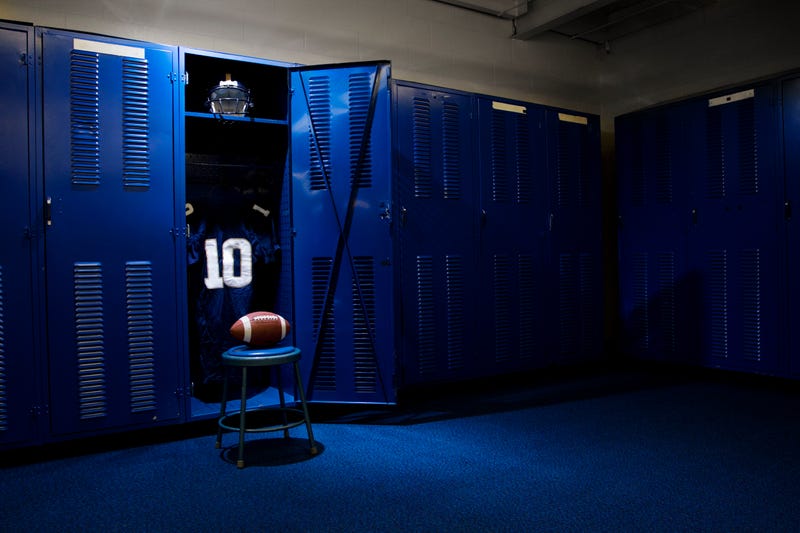
Student athletes who violate the Minnesota State High School League’s newly installed Name Image and Likeness (NIL) policy could be ruled ineligible to participate in that sport for the rest of their high school career.
MSHSL Executive Director Erich Martens confirmed that punishment during a WCCO Radio appearance with Mike Max on Wednesday.
“Once you become a professional you would not be eligible at a high school level,” Marten said, adding any violation risks high school students’ status as amateurs. If you would be deemed to be in violation of this and deemed to have violated your amateur status by becoming a professional, professionals would no longer be eligible in that particular sport.”
The policy was approved by the MSHSL’s Board of Directors during a meeting on Tuesday. Martens said the measure was passed proactively in order to make all the rules clear to students to avoid any rules infractions that the athlete didn’t intend to break. Martens said the decision was also prompted by students reaching out to the organization to understand what they can and can’t do.
“People just haven’t had any guidance into ‘is this OK or not OK?’” Martens said. “As opposed to maybe having something happen and having to try and figure out if that constitutes as a violation, giving them some clear guidance here is really helpful.”
These are the restrictions:
The compensation is not contingent on specific athletic performance or achievement (e.g., financial incentives based on points scored).The compensation is not contingent on specific athletic performance or achievement (e.g., financial incentives based on points scored).
The compensation (or prospective compensation) is not provided as an inducement to attend a particular school (“recruiting”) or to remain enrolled at a particular school.
The compensation is commensurate with market value.
The compensation is not provided by the school or an agent of the school (e.g., booster club, foundation, etc.).
NIL activities must not interfere with a student-athlete’s academic obligations.
A student must not miss athletic practice, competition, travel, or other team obligations in order to participate in an NIL opportunity.
A student cannot wear their uniform or make reference to their school or sport and cannot use state logos.
Bad behavior expected
And while the MSHSL created the policy in hopes to avoid unintentional rule breaking, Lee Hutton, a managing partner at Hutton Law Firm, said it’s inevitable there will be bad actors.
I think we have to anticipate that there is going to be some bad behavior,” Lee said. “The Minnesota State High School league, I think, eventually just came to grips that this is something that’s going to be unavoidable.”
Hutton fears the influx of money to an even lower level of amatuer athletics
“Do we have a problem in taking a high school athlete who enjoys the game of football and monetizing it in to where we remove the fulfillment?,” he said. “Are we talking the thrill out of just being an athlete playing sports?”
There’s also a major distinction between college NIL deals and high school NIL deals, Hutton said. While most college athletes are over the age of 18, most high school students will not. That will require an extra step as parents/guardians will be required to sign off on deals and be part of the process. He said it opens up other questions too, like whether students will have to open up LLCs or the uncomfortable situation of a 15-year-old suing a company or breach of contract.
Sparse but lucrative
But while NIL has become a massive part of college athletics, Martens said the organization doesn’t expect widespread interest in high school athletes.
“I think right now the percentage of student athletes that this might apply to would be rather small,” Martens said. “It’s going to take some time for this to sort out.”
But for the ones that do garner offers, they could be substantial. Brian Sandifer coached both Chet Holmgren and Jalen Suggs on Team Sizzle, an Minnesota-based AAU team. He speculated both players could have likely received offers in the six figures had these policies been in place when they were students at Minnehaha Academy.
“Probably close to three to five hundred (thousand dollars) a year,” Sandifer said. “Just locally alone, those guys’ names are real prevalent.”
